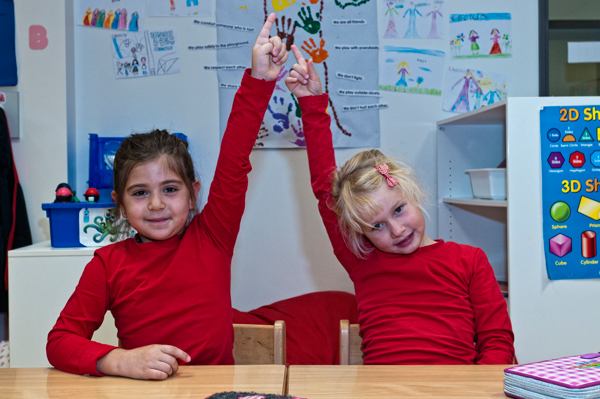Phorms offers bilingual teaching in German and English with an emphasis on educational excellence in all subjects and a philosophy that embraces cultural diversity within the classroom.
“A lot of parents are under the impression that enrolling their children in a bilingual school will open all the doors for them, since they will be proficient in English,” Beckmann says.
“But you have to make sure that all subjects – whether they are taught in English or in German – are significant and important. The curriculum is the core along with the teachers who are in charge of it.”
The Phorms concept
This is the vision and mission that has been built on since the first Phorms school was founded in Berlin in 2006. The concept has spread around the country and now over 2,600 students are currently enrolled across six locations.
There are two campuses in the German capital, Berlin Mitte and Berlin Süd, alongside further schools in Frankfurt, Hamburg and Munich. Phorms has developed its bilingual educational concept from nursery to secondary school age and students are accepted from the age of one, through reception, primary and up to 12th grade.
The Berlin Mitte campus encompasses 150 students ranging from grades 7-12 and has seen its first students graduate over the last two academic years. Whilst bilingual education is becoming a popular choice for parents and students alike, Beckmann points out that continuous development is key.
“Bilingual courses at German universities are a recent phenomenon,” he says. “It’s comparatively new and has to be built upon and we are part of that.”
The bilingual Arbitur
There are several advantages to the Phorms concept, exemplified by its Berlin Mitte campus. Half of the teachers are native English speakers and the secondary school has been awarded a bilingual Arbitur permit. That means students are free to continue their studies in Germany or take advantage of their linguistic ability and study further afield.
Highly-motivated students can also participate in the Advanced Placement International Diploma, which makes direct admission to international universities easier.
“I believe parents want their children both to study according to the German Arbitur and be fluent in English,” Beckmann adds. “So our bilingual Arbitur is definitely something we can call an achievement.”
The rise of private education
Beckmann has 20 years experience of teaching in Germany and various parts of the world, both in the state system and the private sector. “In recent years Germany has seen an increase in the acceptance of private schools,” he says.
“Private schools that are fully accepted and authorized receive subsidies from the senate which tells us that the state are not able to cope with the workload any more.”
“But private schools have to survive and they can only do this through good teaching and marketing,” he adds.
Aside from academia, there are many added extras that make Phorms stand out among peers, from its arts and sports clubs to small class sizes.
The after-class activities
Pupils receive extra attention thanks to manageable class sizes with a limit of 22 students. In addition, each class is conducted by a teacher with a teaching assistant on hand to provide further student support.
“We are a full day school,” says Juliane Mann, Phorms’ marketing manager. “That means the school is open from 8.30am until 4pm and offers various after-class activities.
Indeed, at Berlin Mitte, students can join the rock band or join training sessions with top Berlin basketball team ALBA. “Our activities help to promote a community feel and students experience how to engage with different cultures.”
And in the globalized world in which we live today, that is fast-becoming an important life skill for young people that can’t be taught from a textbook.
Article sponsored by Phorms



 Please whitelist us to continue reading.
Please whitelist us to continue reading.